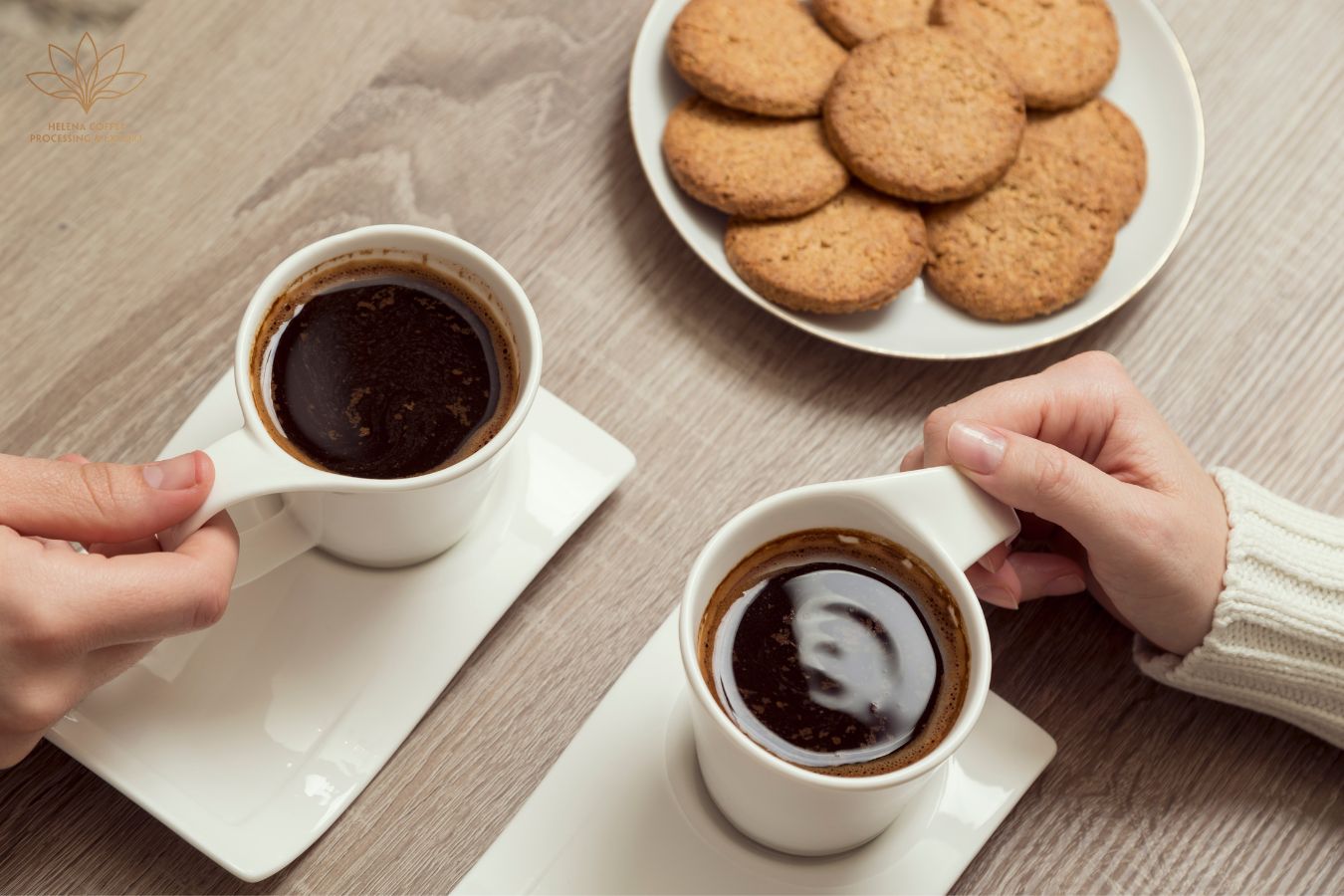
Is the Bitter Taste of Coffee Scary? – Bitterness isn’t always a terrible thing. If your coffee does not taste bitter, it may be overly sour or sweet. Bitterness is the key to achieving equilibrium. A subtle bitterness will add variation to the dish while complementing and not overpowering the other flavors. Join Helena to learn about Is the Bitter Taste of Coffee Scary?
I am returning to the Vietnamese coffee culture. Stores here frequently provide coffee with a distinctly bold and bitter flavor, which has long been used as a criterion for judging “excellent” coffee. As a result, the high-quality coffee business and specialty coffee have faced significant challenges.
In truth, pure coffee contains a wide range of flavors, including bitterness. However, it might be a genuine issue if your coffee is bitter. So, how does actual bitterness in coffee beans feel, and how do we keep it under control when we drink it? Please take the time to read the following article:
What is the definition of bitterness?
He is the most sensitive of the three of you, and he causes a lot of distress. People frequently recall anything bitter or unpleasant, the majority of which disturbs emotions of comfort, and the more painful it is, the longer it will be placed.
Many people imagine the tongue as a taste map with distinct zones for detecting salty, sweet, sour, bitter, and bitter flavors. However, we now understand that taste may be seen in all areas of the tongue.
This is because our sensory tongue cells contain a large amount of protein, roughly 35 of which react with chemicals in food to produce a bitter taste.
As a result, these molecules, known as phenolics, are responsible for the bitter coffee flavor. Chlorogenic acid, which makes up to 8% of the coarse mass of green Arabica seeds and significantly impacts the sensory aspect of coffee, is one of the most frequent chemicals.
Green coffee’s bitterness
When we talk about bitterness in coffee, we often link roasting with it – not because the coffee beans aren’t bitter in the first place, but because no one consumes green coffee often enough to notice them.
Let’s look at Robusta, which has more chlorogenic acid and caffeine than Arabica, making it taste more bitter. Chlorogenic acid can account for up coffee 10% of dry mass in Robusta, which is 2% higher than Arabica. Furthermore, Robusta contains nearly twice as much caffeine as Arabica.
Various factors, including kinds, species, and agricultural methods, can influence the amount of chlorogenic acid in coffee beans and the quality of the coffee you drink.
Furthermore, the proportion of chlorogenic acid is determined by the rate of ripening and the technique of processing coffee beans; for example, if coffee is picked raw, the rate is higher. As a result, if you drink too much coffee with a high survival rate, you may often feel bitter and bitter.
Is it true that roasting coffee makes it bitterer?
Okay, this is the last bit of specialist information. Numerous chemical processes occur during roasting, which breaks down chlorogenic acid and produces a bitter taste.
Although chlorogenic acid is the cause of bitterness in coffee, it is only after it is roasted that it is broken down into 3-caffeoylquinic-1, 5-lactone, and 4-caffeoylquinic-1, 5-lactone via chemical processes (you can call them phenyl in Danes for short). Phenylindanes are the bitter compounds that make up the majority of bitterness.
Furthermore, the roasting profile directly impacts the number of phenylene Danes in your coffee. Light to medium roasting is less bitter yet retains the authentic coffee flavor we all know and love. When roasting reaches the Dark stage, we are only aware of the bitter, notorious taste.
How to Stay Away From Bitterness
Will you only buy Arabica to avoid the harsh flavor of coffee? You surely know that Arabica is less bitter and sour than Robusta, so will you only buy Arabica to avoid the bitter taste of coffee? This isn’t necessary because you can do a few things to lessen the bitterness in your coffee cup.
Because brewing is meant to extract caffeine, you don’t want to put too much caffeine in your coffee cup because the taste would be unpleasant.
First and foremost, ensure that you have the correct size of coffee grinding for the brewing method you intend to use. They enhance the surface clearance of coffee and water as they go smaller, extracting more flavor than coarse grinding.
The next step is to check the temperature of your water; the hotter the water, the more coffee bean components are extracted. If your coffee tastes bad, wait for the water temperature to drop a few degrees before brewing.